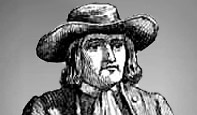So if heaven has lost its appeal, and science is God’s answer to ecclesiastical corruption, what is left of the teaching of Jesus? The problem facing Christians is how to retain Jesus as Messiah or Redeemer, and yet strip from him the bogus magic with which he is surrounded: indeed to discover whether it is possible to do this, or whether stripping him of the magic destroys the great myth he left behind as well? In religious terms, if Jesus led us to the Father, has he fulfilled his mission; is not an indwelling with the Father sufficient for us to cope with life as it ought to be lived?
We are not so limited as Jesus in our experience of life. So we can bring a much broader intelligence to bear on life’s problems. And after all, we have to face much broader problems. Those who seek to build an entire theory of social responsibility on the authority of one remark, “Render unto Caesar the things that are Caesar’s…” are little better than those who seek to find the whole of modern science in the Koran. If you set out on such a quest, you are unwise; if you think you have succeeded in your quest, you have lost all judgement. We may have lost the ability to heal the sick as he did; but we are much better informed about almost every aspect of life than Jesus was; and it is no blasphemy to say it. It is no more irreverent than saying that the modern student of Part I of the Natural Science Tripos knows more physics than Newton. Both statements are correct; and it does not derogate from Newton’s genius. But we do not, of course, have to be the Messiah; and if we did, I think we would not show up very well. He did; and was incomparable.
If a man wants to follow Jesus, which was the heart of his teaching, as opposed simply to admiring him, then what is important is that Christ was a man like us, even if God put something of His very Self into him. His physical body worked in the same way; if he cut his finger on a chisel, the chemistry of his blood clotting was the same as ours. His mind worked in the same way; he too had beliefs and had to decide whether to put them into practice. His affections were the same as ours; he too could form friendships, and find he loved someone. And if he had a closer walk with God and a clearer understanding of His will than most of us, there is nothing obvious to prevent us enjoying the same advantages. The final prayer, with which the Last Discourses end, envisages the Creator dwelling in men, as he had dwelt in Jesus himself. So provided there is no impassable gulf between Jesus and ourselves, what was possible for him should be possible for us. But if there is a gulf, and we cannot imitate him, the position is much more delicate. Does an indwelling with the Almighty leave Jesus behind? Or is one a coward; does one abdicate having a mind of one’s own, because one dare not face the consequences?
What does it mean to say, “Jesus is incomparable”? What does it mean to follow Jesus in a profession in this scientific, commercial world, where you must either master the Rules of Conflict or perish. Even if you do master them, it is wise to remember that peace is better than conflict; though it may not be always attainable. It is little good going to the Gospels to find an answer. Whether Biblical criticism is valid or invalid, it has undermined the credibility of the Gospels as biography or history in the modern sense. They were written, and avowedly written, to prove Jesus was the Messiah, and had fulfilled the messianic prophecies of the Old Testament. Maybe he did; but this is of little interest to us. Even Pauline thought, with its emphasis on the Jewish idea of sacrifice for sin, is barely intelligible to the scientific mind.
Nor is it much good going to the clergy, who are partial witnesses. Nowadays we still tend to accept impartial statements until they are shown to be wrong, though we may be more and more sceptical about statements really being impartial. But no-one believes statements by a partial witness. Today we bracket the partial witness with John Tetzel, the 16th century Dominican friar, who sold indulgences by claiming that if you helped to pay for the new St.Peters, not only would you go straight to heaven, but the local hills would turn to solid silver. Most politicians are partial witnesses; and many people regard them as 16th century educated Bavarians regarded John Tetzel.
